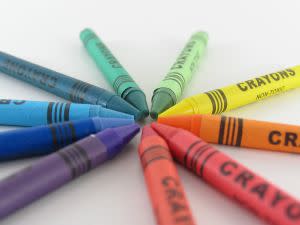Do You Have These Friends? Must Friends, Trust Friends, Rust Friends, and Just Friends

Ancient philosophers and contemporary scientists agree that a key - perhaps the key - to happiness is strong relationships with other people. We need to have intimate, enduring bonds; we need to be able to confide; we need to feel that we belong; we need to be able to get support, and just as important for happiness, to give support.
We need many kinds of relationships; for one thing, we need friends.
Now, the term "friend" is a little loose. People mock the "friending" on social media, and say, "Gosh, no one could have 300 friends!" Well, there are all kinds of friends. Those kinds of "friends," and work friends, and childhood friends, and dear friends, and neighborhood friends, and we-walk-our-dogs-at-the-same-time friends, etc.
Obviously, such relationships are very different, although they're all "friends."
In Geoffrey Greif's book Buddy System: Understanding Male Friendships, he identifies four categories of friendships:
Must friend: a best friend, a member of your inner circle, a person you count on when something big happens in your life
Trust friend: a friend who shows integrity, someone you feel comfortable with, that you're always glad to see, but not in your inmost circle; perhaps someone you'd like to be closer to, if you had the time or opportunity
Rust friend: a person you've known for a long, long time; you're probably not going to get any closer to that person, unless something changes, but a part of your life
Just friends: a person you see - at a weekly poker game, at your child's school - who is enjoyable company, but you have no desire to socialize outside a specific context or to get to know that person better
I think it's helpful to think about the different types of friends. Even if you wouldn't invite some people to your wedding, they can still add a sense of warmth and richness to your life.
A friend of mine did an interesting friend-related exercise. She took a big piece of paper and made a chart of her friendships, based on clusters. As she did it, she highlighted the names of the people or institutions that had introduced her to a particular cluster. What she found - and this struck me as so interesting - was that a few people had served as very important connectors. Until she made that chart, she hadn't realized that these few individuals had made such a difference in her social life.
I keep meaning to do this exercise myself.
What do you think of the four categories: must, trust, rust, and just friends? Are there any kinds of friends that aren't captured in those four terms?
If you want tips for making new friends, look here, and tips for maintaining friendships, look here. I write about friendship in The Happiness Project, chapter on friendship.
If you're reading this post through the daily email, click here to join the conversation. And if you'd like to get the daily blog post by email, sign up here.
Also ...
I continue to be staggered by the response to the four new 21 Day Projects. If you want to make some concrete, manageable changes in your life, I hope these Projects will be helpful. Curious about the breakdown?
Know myself better is in the lead; De-clutter my life is next; Quit yelling at your kids; and Cope better with difficult people.
Intrigued? Of course you are! Learn more and sign up here.
